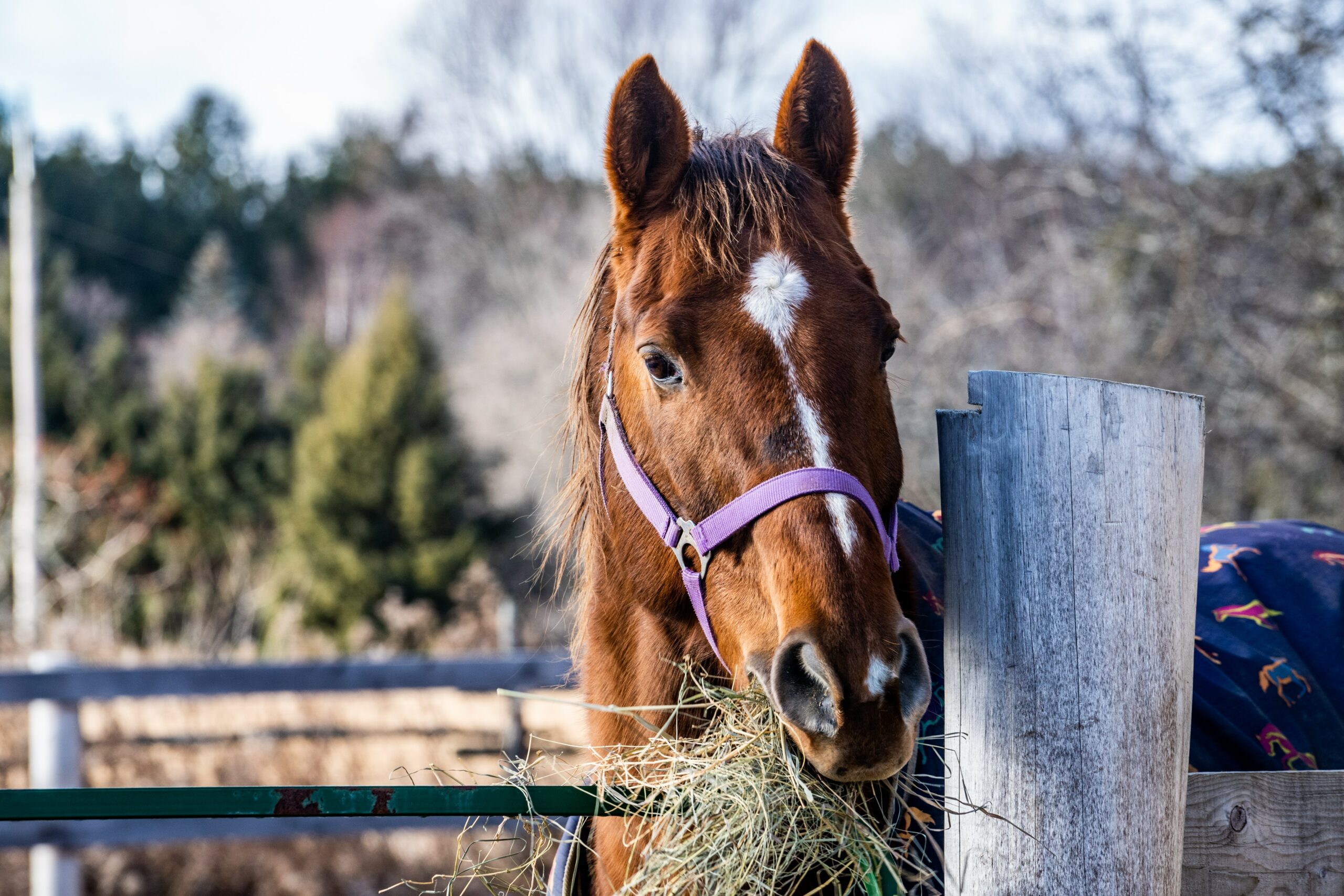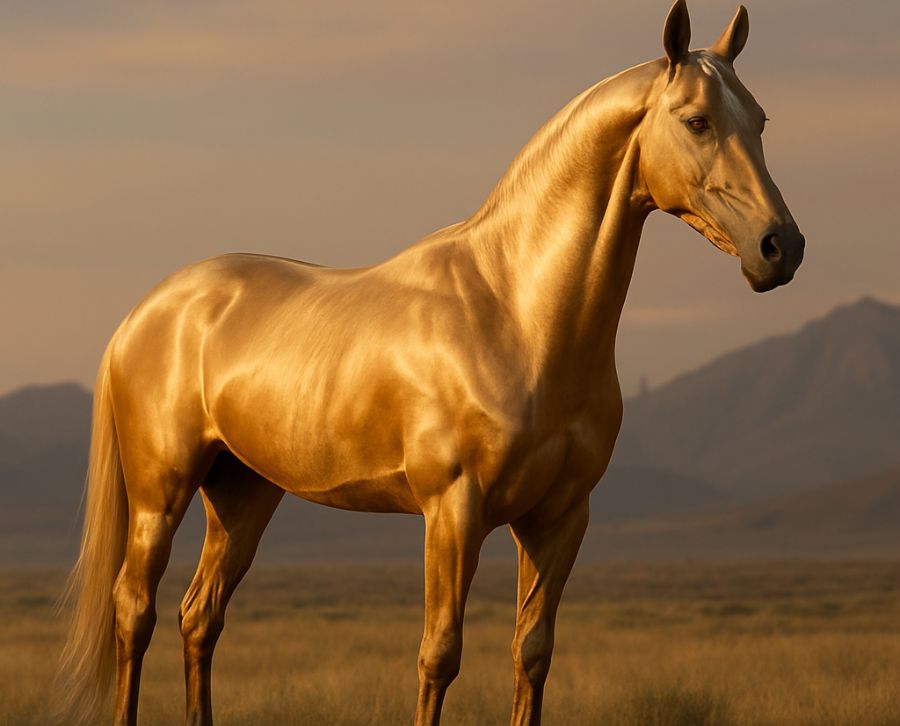First of all, in order to understand proper horse nutrition, we must know that horses are herbivores and that their jaws are designed to chew fruits, flowers and grasses. Their large size can be deceptive, as they have a delicate digestive system along with a small stomach.
Therefore, it is necessary to control the portions they eat, which will also depend on their age and level of activity. So, in order to keep it healthy and prevent diseases such as gastritis and colic, we will now explain what a horse’s diet should be like.
Horse feed
When it comes to horse feed, it is mostly based on fibre, so the horse should consume good amounts of hay, grass and forage. However, we can supplement this with fruit, vegetables and cereals. Let us look at this in more detail:
Grass
Grass is their natural food, which is easily accessible to them when they are not in captivity. This is the best thing they can eat, as it provides them with most of the nutrients they need. However, we must be cautious with the grass they eat, as some of it could be contaminated.
Hay
Regarding the type of food the horse needs, hay is one of the main feedstuffs. This consists of grass, legumes or grass, so there are three variants available: alfalfa hay, grass hay and the combination of alfalfa with grass.
We must make sure that the hay we are going to give our horse does not have traces of mould and dust, because it may suffer from respiratory and gastrointestinal complications if it eats this food in poor condition.
Grains
Just as we need a balanced diet to stay healthy, so do these animals. Within the horse’s diet, horses need to eat cereals and grains such as barley, oats and corn.
Feed
When it comes to horse feed, despite the nutrients provided by grasses, grains and hay, horses require protein, fats, minerals and vitamins to keep their immune systems strong. This can be found in commercial feeds or concentrates, which are sold for adult horses or growing foals.
The horse’s diet can be much more varied with these supplements, which usually come with fats such as vegetable or animal fats, with proteins such as meat meal or vitamin and mineral feeds.
Vegetables and fruits
A horse’s diet also consists of vegetables and fruit, which should be fed occasionally and should not be the basis of the horse’s diet. Horses love watermelon, strawberries, apples, bananas and pears. When it comes to vegetables, carrots, courgettes, beetroot and celery are excellent for them.
Minerals and salts
Salt is also part of the horse’s diet, as it contains chloride and sodium, minerals that the horse loses during physical activity. Salt is provided loose or in blocks.
The importance of water
An essential part of a horse’s diet is to have quality water nearby at all times to prevent dehydration, as it has a requirement of 18-56 litres of water per day. If the horse is very active, it will need more water, as will foals and lactating mares. Water should not be kept warm in summer.
Frequency of feeding a horse
It should always be taken into account that horses have small stomachs, so small portions should be given so that they do not have problems with digestion. We suggest feeding horse food 2 or 3 times a day. Of course, if you are in charge of a horse that makes a lot of physical effort, you will have to feed it more often, but always keeping the size of the portions.
In addition, a schedule for eating and a schedule for exercise or work will help with digestion.
On the other hand, horses should avoid eating cabbage, broccoli, cauliflower, avocado, onions and Brussels sprouts, as they tend to promote colic and digestive problems. In short, the type of horse feed is a bit special and requires our attention if we want to have a beautiful and healthy horse.





